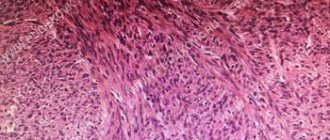Worms are a topic that is not usually discussed in polite society. Indeed, there is little pleasant in helminths, and many believe that becoming infected with them is a great shame.
In fact, every person in his life runs the risk of getting helminthiasis - this is the name of the disease in which the body is parasitized by worms, called helminths or simply worms.
Of course, helminthiasis must be treated. It is equally important to take preventive measures to prevent worm eggs from entering the body. In this article we will answer questions about how to do this.
Symptoms of helminthiasis: how to understand that there is a “stranger” inside you?
There are many signs of worm infection, and we will list the main ones. If you notice at least a few of the symptoms, you should consult a doctor:
- itching in the anus and genital area (typical of pinworm infection);
- urticaria - redness of the skin and rashes on it (allergic reaction to helminths);
- swelling of the mucous membranes (also observed due to exposure to allergens);
- abdominal pain, nausea, changes in appetite (increase or decrease), rapid weight loss;
- diarrhea, constipation, increased gas formation, other stool disorders;
- changes in blood composition;
- weakness, fatigue, dizziness;
- headache;
- enlarged lymph nodes, liver and spleen;
- pain in joints and muscles;
- blood in the urine, frequent urge to urinate;
- dry cough, shortness of breath;
- constantly elevated temperature.
However, there are cases when helminthiasis is asymptomatic for a long time. We recommend that you pay maximum attention to your health and make an appointment with a doctor for preventative measures. This is especially true after traveling to countries famous for unsanitary conditions.
Helminths: so what are they?
We call worms the simplest round or flat worms that parasitize the body of humans or animals. Experts identify more than 400 species of human worms, of which about 100 species have been found in Russia.
The most famous helminths are, of course, roundworms, pinworms and various types of tapeworms. However, even experts will not be able to list all existing types of worms. Moreover, in exotic countries you can become infected with helminths that are absolutely atypical for our region.
It is precisely because of the variety of worms that it is difficult to give the patient a correct diagnosis. Symptoms of helminthiasis can resemble manifestations of various diseases, depending on which particular parasite has entered the body.
In addition, a person can suffer from several types of helminths at the same time, which further complicates the clinical picture and has a detrimental effect on the patient’s condition.
Based on the places in which the worms are localized, they are divided into:
- cavity or luminal - living in different parts of the intestine (pinworms, whipworms, dwarf tapeworms, broad tapeworms);
- tissue - choosing body tissues as their habitat (muscles, lungs, heart, liver, skin, eyes, etc.).
The roundworms we all know can be classified as both types of helminths. Most often they live in the intestines, but sometimes roundworm eggs travel through the bloodstream to other organs of the body and develop there.
According to the World Health Organization, every second inhabitant of the Earth becomes infected with helminths every year without knowing it. Some Russian and foreign researchers come to the conclusion that certain parasites can be found in the bodies of 95% of people.
Symptoms of parasite infection in adults
Most adults associate helminth infection with children, and there is an explanation for this well-established opinion: helminth infestations are indeed widespread in childhood, because young children may not follow hygiene rules, are in large groups of children, and so on. However, helminthiases also occur in adults! Moreover, parasites in the body can cause symptoms that a person not related to medicine would never associate with helminthic infestation.
For example, parasites can contribute to the development of allergies, since they themselves (and their metabolic products) are allergens, and they also disrupt the functioning of immune defense mechanisms, which leads to a decrease in immunity. Various allergic reactions develop (runny nose, lacrimation, skin rash, swelling, diarrhea) to familiar foods, pollen, household dust, and they quickly intensify. Against the background of changes in the immune system, frequent acute respiratory viral infections are observed, and general health worsens.
On the part of the digestive system, when infected with parasites, there are
- pain in the upper abdomen, near the navel,
- bloating often occurs
- diarrhea,
- painful cramps in the lower abdomen,
- constipation,
- itching
Such symptoms may indicate infection with roundworms, which live mainly in the small intestine, which is why the listed unpleasant sensations develop. Painful cramps in the lower abdomen, constipation, and itching in the anus are more typical when infected with pinworms, since they are localized in the large intestine. With all helminthic infestations, appetite is impaired, and it can not only disappear, but also intensify.
Some helminthic infestations, for example, echinococcosis, opisthorchiasis, are asymptomatic.
Complications of helminthiases that develop without treatment include the following (some of them are listed):
anemia
arise due to impaired absorption of nutrients from the intestine, absorption of vitamins and proteins; studies show that even a mild degree of helminthic infestation can cause such disorders;
intestinal obstruction
— mechanical blockage of the intestine, most often in children under 10 years of age, but adult patients also appear in world statistics; intestinal obstruction can cause death;
bronchial obstruction
(with ascariasis) and corresponding manifestations from the respiratory system;
jaundice (with ascariasis) due to blockage of the bile ducts.
Important!
An adult can become infected with parasites by consuming thermally unprocessed food (fish, meat) or insufficiently washed greens. Dangerous helminths can enter the human body from pets - dogs, cats, turtles, etc. That is why even adults need to undergo periodic tests to detect helminthic infestation, especially if persistent symptoms from the digestive system are observed.
Consultation with a gastroenterologist and testing for parasites
Are you worried about heaviness in the stomach, bloating, heartburn, bitterness in the mouth?
Make an appointment
Diagnosis of helminthiases
Feces on worm eggs
Some helminthic infestations are extremely difficult to detect in feces due to the peculiarities of the life cycle of parasites, for example, with ascariasis, in such cases it is necessary to determine antibodies in the blood to helminths. When identifying pinworms, the analysis is informative (accurate).
Blood test to determine antibodies to helminths
These studies are prescribed to determine the presence of pathogens such as roundworm, toxocara and others in the body. The tests are accurate and allow you to determine the presence of a parasitic infection.
Important!
At the end of treatment, it is necessary to verify its effectiveness (elimination of parasites) by conducting repeated studies.
Frequently performed tests - specific tests for helminthic infestations, as well as general and biochemical blood tests - help identify more dangerous health problems that require immediate treatment and can be fatal. For example, in conjunction with tests for helminth infections, tests are prescribed to identify hidden viral infections that cause serious harm to the body and weaken the immune system - for the Epstein-Bar virus, cytomegalovirus and others. That is why any test prescribed by a doctor can give him important information about the reasons for the patient’s poor health and allow him to begin targeted treatment in a timely manner.
Treatment of helminthiasis at TN-Clinic
Despite the unpleasantness of the situation, most helminthiases are treated by using special medications. Modern anthelmintic drugs are well tolerated, do not give serious side effects, and if the treatment regimen is followed, individually selected by the doctor, taking into account the condition of the body. Strict adherence to the rules for taking medications guarantees the complete elimination of parasites from the body.
However, the treatment does not end there. It is necessary to eliminate the consequences caused by helminthic infestation in the body, so the doctor may prescribe drugs that improve digestion (enterosorbents, probiotics, anti-inflammatory drugs), antiallergic drugs, expectorants, antianemic drugs (iron supplements), vitamin-mineral complexes and others. I would like to especially note that therapy is always strictly individual and depends on the characteristics of the body of each individual patient, therefore it is best to carry out treatment under the supervision of a doctor.
At the TN-Clinic, patients are provided with a unique opportunity to further improve the health of the body with herbal medicines. A gastroenterologist, also certified as a herbalist, will individually select a herbal mixture based on medicinal herbs with anti-inflammatory, anthelmintic, and antiallergic effects. Herbal medicine courses help normalize digestion and eliminate discomfort - heartburn and belching, bloating and stool disorders, restoration and support of the body is as comfortable as possible for the patient. The TN Clinic also uses homeopathic treatment as a supportive treatment, since these drugs have a mild complex effect on various body systems.
Ways of helminths entering the body
There are several of them, but the most common ways are four:
- From person or animal to person. This is how, for example, pinworm infection occurs. If a person infected with this type of worms touches various objects without washing their hands, then this will become a risk factor for others (it is not without reason that enterobiasis - and this is what pinworm infection is called - is an occupational disease of teachers, because pinworms are a real scourge of primary schoolchildren) .
- Through the soil. Worm eggs enter it along with human and animal feces, after which they are carried by water, insects, pets or wind (with dust particles) and end up on food or directly into the digestive tract or respiratory tract.
- When eating food that has not been subjected to heat treatment. Raw or half-raw meat or fish infected with worms are very dangerous. Therefore, you should very carefully choose restaurants that serve sushi.
- For insect bites. This happens quite rarely, but the risk of contracting helminthiasis through a bite increases when traveling to exotic countries.
Which population groups are most susceptible to infection?
Helminthic infestations occur more often in the following groups:
- 1Children of young age due to active knowledge of the world and lack of personal hygiene skills.
- 2Children organized in groups (kindergartens, schools, camps, sanatoriums, etc.). Close interaction, shared habitat and exchange of toys contribute to the spread of geohelminthiasis with a simple life cycle.
- 3Adults who have close contact and work with children, including teachers and parents.
- 4Persons with certain dietary habits: consumption of raw or poorly processed meat, fish, seafood, herbs, etc. Great importance is attached to national cuisine (sushi, stroganina, yukola, porsa, and other dishes), love for drying, salting and smoking.
- 5Persons living in endemic areas, tropics and subtropics.
- 6Persons who often travel to countries in Africa, Southeast and Central Asia, and South America.
- 7Persons living in poor sanitation conditions, with lack of access to quality water resources and sanitation.
- 8Persons closely associated with agriculture and cattle breeding, living close to animals.
Helminthiasis - a childhood disease?
Worms are often considered a childhood disease. The reason for this is that children often do not follow the simplest hygiene requirements: they do not wash their hands when coming from the street, after visiting the toilet or petting an animal, they eat dirty fruits and vegetables, and they may drink unboiled water. Kids, in addition, get to know the world by testing it by taste - they, as you know, put everything they can reach into their mouths. This is how parasite eggs enter the body.
The facts today are as follows: yes, children suffer from helminthiasis more often than adults. But this does not mean that advanced age is insurance against the penetration of worms into the body.
It is possible to defeat parasites!
Antiparasitic Complex® - Reliable and safe removal of parasites in 21 days!
- The composition includes only natural ingredients;
- Does not cause side effects;
- Absolutely safe;
- Protects the liver, heart, lungs, stomach, skin from parasites;
- Removes waste products of parasites from the body.
- Effectively destroys most types of helminths in 21 days.
There is now a preferential program for free packaging. Read expert opinion.
Read further:
At what temperature do the eggs of worms (roundworms) and pinworms die?
Prevention of worms in adults: drugs to prevent the development of helminthiases
What worms look like in children: roundworms, pinworms, flukes and tapeworms
Pinworm eggs: how long they live, what they look like and at what temperature they die
How long do worms live in the human body and in the external environment, the life cycle of helminths
Helminths and helminthiases: classification, routes of infection, prevention and treatment
How dangerous are worms?
A reasonable question: if the worms will most likely disappear on their own after some time, is it worth treating them? Doctors answer: this step is necessary.
Some types of worms have a very long lifespan and during this time they will have time to harm our health. But even parasites such as pinworms, which die after about a month, are harmful to the body.
Possible consequences of infection:
- The waste products of worms act on the human body as poisons or allergens, reducing overall well-being. An allergic reaction, in turn, can lead to Quincke's edema and death.
- Living in human tissues and organs, helminths damage them mechanically and interfere with normal functioning.
- Worm larvae, migrating throughout the body in the bloodstream or entering the respiratory tract, can clog blood vessels and cause bronchial obstruction.
- Some types of helminths disrupt the digestive process, which can lead to severe poisoning.
- Experts have discovered that there are helminths that cause cancer.
Worms are the most dangerous for children: in addition to a huge range of diseases and decreased immunity, they can cause developmental delays, both physical and mental.
Every third Russian has worms, so do you need to take pills for prevention?
Parasitic worms live mainly in the tropics and subtropics, and not in Russia. China, sub-Saharan Africa, South America and East Asia are in the danger zone. In all these regions, at least half of the children have worms.
The World Health Organization does not consider Russia to be a country with a worm problem. This can be easily seen by looking at the map of countries in which it is recommended to give children medications to prevent worms in adults and children.
According to WHO recommendations, medications based on benzimidazole, albendazole or mebendazole are used to prevent infection with certain types of helminths. These drugs are toxic not only to parasites, but also to humans. In countries where the risk of infection is high, this is justified. But if the danger is low, as in our country, you cannot take anthelmintic drugs without a doctor’s prescription.
Treatment of helminthiasis
Having determined the presence of parasites in the body, the doctor develops a course of treatment based on which worms have “settled” in the person, and prescribes the necessary medications.
Some people believe that you can use “grandmother’s remedies” (for example, eating garlic) and thereby get rid of “uninvited guests”. But, as we have already said, helminths are diverse, and only a doctor, after conducting all the necessary research, can confidently conclude what type of helminthiasis the patient suffers from and how it should be treated.
SMC Best Clinic has everything you need to conduct laboratory tests, and our doctors have extensive knowledge about helminths and the treatment of helminthiasis. You can safely entrust your health to us.
Introduction to Terminology
Human helminth infections are usually caused by parasitic worms of three classes: Nematoda (nematodes) - roundworms, Cestoda (cestodes) - tapeworms, Trematoda (trematodes) - flukes. According to the class of pathogen, all human helminthiases are conventionally divided into:
- 1Nematodes are helminthiasis associated with infestation by roundworms or their larvae. The most well-known nematodes are enterobiasis, ascariasis, hookworm disease, toxocariasis, and strongyloidiasis.
- 2 Cestodoses are caused by parasitism of tapeworms or their larval forms. The most common cestodiasis are diphyllobothriasis, taeniasis and teniarinchiasis, hymenolepiasis, and echinococcosis.
- 3 Trematodes are helminth infections caused by different types of flukes. The most common diseases in the Russian Federation are opisthorchiasis, clonorchiasis, less commonly fascioliasis, and very rarely paragonimiasis.
All parasitic worms differ from each other in their place of residence in the body of the infected person, structure and life cycle. That is why we will talk further about the general nonspecific symptoms of infection with “worms” and the specific ones inherent only in any type of invasion.
In relation to the territory of the Russian Federation, all helminthiasis can be divided into:
- 1Typical, that is, often found among the Russian population;
- 2Exotic, caused by population migration and tourism to other countries.
Detection and treatment of exotic helminth infections is a more complex and time-consuming process, since laboratories may not have the necessary reagents to perform laboratory tests. The following types of helminthic infestations are typical for the territory of the Russian Federation (Table 1).
Table 1 - The most frequently recorded helminth infections in the Russian Federation. To view, click on the table.
Preventive measures against worms
In order not to become infected with helminths, you need to remember about hygiene: always wash your hands, vegetables and fruits, get rid of the habit of wetting your fingers with saliva when turning pages, and generally putting your hands to your mouth, do not try foods in markets, eat with caution in unfamiliar restaurants and regularly take shower.
These measures, however, do not guarantee complete protection against worms - this should not be forgotten. Therefore, get tested at least once a year and be sure that there are no “dangerous residents” in your body.
Is it true that parasitic worms can cause cancer?
Professor Chistenko believes that this statement applies only to certain types of helminths. Helminthiasis, like any chronic process, is a mechanical irritation of the organ in which the parasite lives. Prolonged irritation, in turn, leads to tissue proliferation, and this is one of the triggers for the development of tumors.
There is confirmed scientific evidence about the connection between echinococcosis (tapeworms that live in the liver) and the development of cancer processes, says the epidemiologist and explains: “The fact is that it is impossible to “expel” these helminths from the organ with medication; treatment is only surgical. And if the parasite stays in the liver for a long time and puts constant pressure on it, this can provoke a malignant process in the tissue.
There is also scientific evidence about the connection between the development of cancer and opisthorchiasis (also a fairly rare type of helminthiasis for Belarus, which is contracted through the consumption of raw fish).
But as for roundworms and pinworms, the most common parasitic worms, there is no scientific confirmation of the dependence of neoplasms on such helminth infections.









